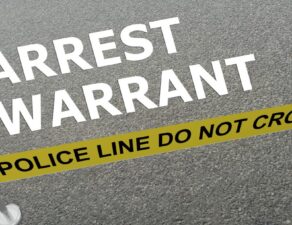
You hear this term all the time—from old western movies to current criminal court cases in Florida.
“I shot him in self-defense.”
But what does this mean?
Self-defense is a principle that means an individual is permitted to protect herself from harm in certain circumstances—despite the fact that this would normally be a crime. Self-defense is a defense based on justification. In the majority of states and Florida, self-defense is a statutory defense, meaning that the laws of the state define how it can be used.
What Does Florida Law Say About Self Defense?
Florida Statute § 776.012(1) states that an individual is justified in using or threatening to use force—except deadly force—against another person when and to the extent that the person reasonably believes that it’s necessary to defend herself or another against another person’s imminent (about to happen) use of unlawful force.
It’s also important to know that a person who uses or threatens to use force under this law doesn’t have a duty to retreat before using or threatening to use such force in self-defense.
When Can a Person Use Deadly Force in Self Defense?
The term “deadly force” means force that’s likely to cause death or great bodily harm, typically, the use of a firearm. Even threatening to discharge a firearm is a threat of deadly force regardless of an intent to actually cause death or great bodily harm of the recipient of the threat.
The law states in Florida Statute § 776.012(2) that an individual is justified in using or threatening to use deadly force against another if she reasonably believes that using or threatening to use such force is necessary to prevent imminent death or great bodily harm to herself or another, or to prevent the imminent commission of a forcible felony.
A person who uses or threatens to use deadly force in accordance with this law again doesn’t have a duty to retreat and has the right to stand her ground if the person using or threatening to use the deadly force isn’t engaged in criminal activity and is in a place where she has a right to be.
Again, a person doesn’t have a duty to retreat and has the right to stand their ground provided she’s not engaged in criminal activity and is in a place where they have a right to be.
What Does “Stand Your Ground” Mean?
Florida Statute § 776.013(3) states that a person who’s (i) not engaged in an unlawful activity; (ii) attacked in a place where she has a right to be; and (iii) has no duty to retreat—has the right to stand her ground and meet force with force, including deadly force if:
she reasonably believes it’s necessary to prevent death or great bodily harm to herself or another or to prevent the commission of a forcible felony.
What Weapons Can I Carry to Protect Myself?
There are only certain weapons that can be openly carried for self-defense in Florida. The law says that a person can carry:
- Self-defense chemical sprays;
- A nonlethal stun gun;
- A dart-firing stun gun; or
- Any other nonlethal electric weapon or device that’s designed solely for defensive purposes.
Concealed Weapons in Florida
Owning a firearm is a serious responsibility, and Florida has specific rules for gun owners. For example, Florida Statute § 790.174 requires a loaded firearm in the home to be stored in a locked container or secured with a trigger lock if the owner reasonably knows that a child under the age of 16 may have access to the firearm.
Also, a firearm can’t be exhibited in “a rude, careless, angry, or threatening manner, not in necessary self-defense…”
A person in Florida can apply for a concealed weapon license, but there are restrictions on how and when a firearm may be used. The laws of self-defense and the use of deadly force apply.
Takeaway
When charged with a crime, if you feel that you acted in self-defense, you must prove the following:
- You had a reasonable belief that it was necessary to defend yourself or another; and
- There was an imminent use of unlawful force by another.
Self-defense has many wrinkles and permutations, and you must have an experienced criminal defense attorney to help you present the most successful defense in your case.
A knowledgeable criminal defense lawyer from McLean Mitchell will be involved in every step of the criminal process to make sure that you are treated fairly and have the best opportunity for success.
Contact a Local Criminal Defense Attorney
If you’ve been charged with a crime in Florida and believe that you were acting in self-defense, contact McLean & Mitchell. We will fight for your rights.
Contact the criminal defense attorneys at McLean & Mitchell to discuss your case in a free consultation.
Our attorneys were former state prosecutors and know the inner workings of Florida’s criminal justice system. McLean & Mitchell are experienced, qualified criminal defense experts in Tampa, Florida. We fight for your rights.









